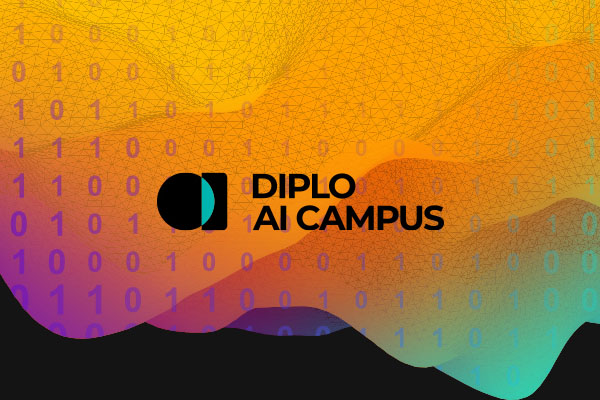Diplo enhances global diplomacy by training officials, building capacity in emerging tech, and promoting digital tools for inclusive governance and policymaking.
Knowledge Hub
Discover our Knowledge Hub, your go-to insights for understanding digital and diplomacy, offering research and analysis on digital policy, cybersecurity, AI, and emerging technologies’ impact on diplomatic practice and training.

Diplo Academy
Advance your diplomatic, digital policy, and global governance skills, gain practical expertise and learn from leading experts.

Resources
Access a library of books, reports, and policy briefs on digital policy, science diplomacy, negotiation, and test our AI tools.

Topics
Explore essential readings, glossary, and case studies to deepen your understanding of crucial diplomatic topics.
Diplo Academy Courses
Upskill your diplomatic toolkit with our online courses and workshops! Master the art of diplomacy and digital policy through interactive learning and expert guidance.
About Us
We promote inclusivity, equality, and fairness in digital governance through diplomatic training and innovative use of technology. Our research reinforces global discussions via reports, events, and AI tools. With alumni from 208 countries, we prioritise peace and enhancing diplomacy’s role in the digital era.

Our Partners













































































FEATURED
The DiploAI Ecosystem

Blogs
Stay at the cutting edge of digital diplomatic practices by reading our blogs, where we reflect on, analyse, and navigate the complexities of today’s world.
How concepts get their meaning
How do words get their meaning? Aldo Matteucci shows how terms like 'dispositif' and 'consul' gain meaning not through definitions, but through repeated use in historical and political contexts.[...]
On the origins of ideas
Do ideas have origins? From medieval communes to WWI, Aldo Matteucci shows how political thought, like a river, is shaped by experience, institutions, and historical context — not just theory.[...]
Don’t waste the crisis: How AI can help reinvent International Geneva
International Geneva faces significant challenges, including financial constraints, waning multilateralism, and escalating geopolitical tensions. To remain relevant, it must embrace transformative cha[...]
FEATURED
Demystifying AI: How to prepare international organisations for AI transformation?

Events
Join our online and in-person events, engage with experts, and deepen your understanding of critical global issues.
FEATURED
10 years of Geneva Internet Platform and Digital Watch Observatory

Projects
We work on strengthening global cooperation and inclusivity through training, research, and dialogue, addressing the challenges and opportunities of digitalisation in diplomacy.
What is diplomacy?
Diplomacy is a practice enabling negotiations between nations’ representatives and international entities. It focuses on effective communication, compromise, and relationship-building to achieve goals and peacefully resolve disputes.
Want to understand the art of diplomacy? Explore core concepts and discover how diplomacy is evolving in the digital age.

Testimonials
The community of our alumni, faculty, and friends makes an impact on diplomacy, technology, and policy worldwide. Here are their views on Diplo.
Diplo’s variety of online courses related to diplomatic activity, the high quality of its tutors and experts, and its commitment to technology and education have led to an increasingly fruitful relationship between our institutions.
Diplo’s Malta summit facilitated an important discussion on the Global Digital Compact, which is a priority for us in the context of the Summit of the Future in 2024 in New York.
Diplo has the power to convince different stakeholders to hash out critical issues to the digital agenda.
Thanks to Diplo, we are now able to go over the contours of all the main ideas on digital diplomacy and cybersecurity.
Diplo puts AI policy in the context of more extensive diplomatic discussions enabling the exchange of different views.
Diplo supports small island developing states by leveraging technological tools to assist our diplomats navigate the digital environment and see the opportunities that the new technologies afford.
While celebrating the 20th anniversary of Diplo, we also need to take stock of the research that has been done by this organisation on diplomacy and all things digital.
Diplo supports civil society in enhancing cybersecurity and all issues related to information and communications technology.
Diplomats must have a long and broad conversation with other stakeholders who are also participating in digital-related discussions. Diplo puts together the setting to talk about those relevant issues.
Diplo facilitates insightful debates that are also applicable to the UN framework.
Very few organisations worldwide will be able to gather such a diverse group of people to discuss some of the most pressing issues of our time regarding digital policy.
My view as an outsider to the world of Diplo and also diplomacy is the unbelievable wealth of knowledge and personality, a testament to the organisation for gathering diverse stakeholders around digital issues, and having such interesting and sometimes surprising views.





























